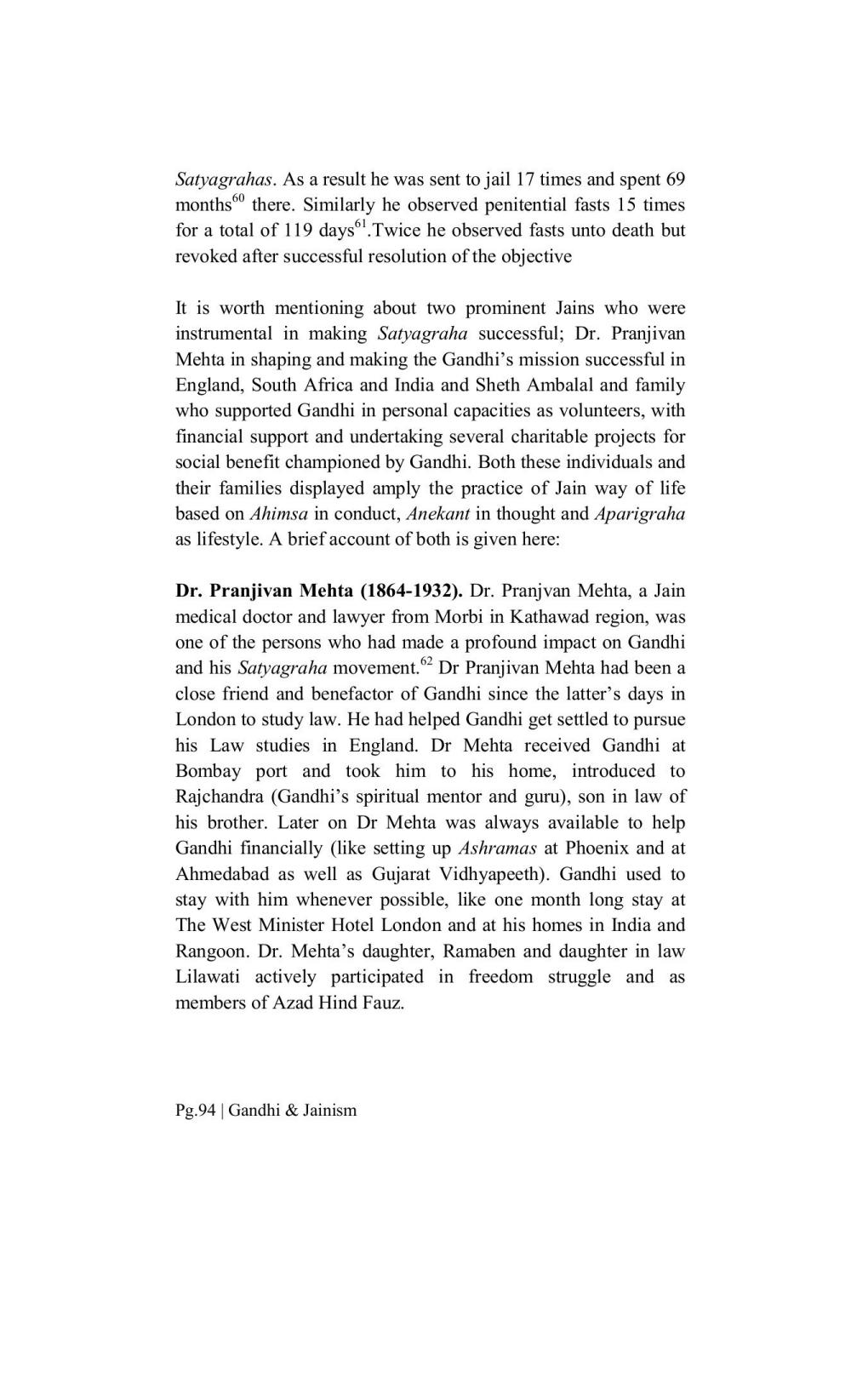________________
Satyagrahas. As a result he was sent to jail 17 times and spent 69 months there. Similarly he observed penitential fasts 15 times for a total of 119 days. Twice he observed fasts unto death but revoked after successful resolution of the objective
It is worth mentioning about two prominent Jains who were instrumental in making Satyagraha successful; Dr. Pranjivan Mehta in shaping and making the Gandhi's mission successful in England, South Africa and India and Sheth Ambalal and family who supported Gandhi in personal capacities as volunteers, with financial support and undertaking several charitable projects for social benefit championed by Gandhi. Both these individuals and their families displayed amply the practice of Jain way of life based on Ahimsa in conduct, Anekant in thought and Aparigraha as lifestyle. A brief account of both is given here:
Dr. Pranjivan Mehta (1864-1932). Dr. Pranjvan Mehta, a Jain medical doctor and lawyer from Morbi in Kathawad region, was one of the persons who had made a profound impact on Gandhi and his Satyagraha movement.2 Dr Pranjivan Mehta had been a close friend and benefactor of Gandhi since the latter's days in London to study law. He had helped Gandhi get settled to pursue his Law studies in England. Dr Mehta received Gandhi at Bombay port and took him to his home, introduced to Rajchandra (Gandhi's spiritual mentor and guru), son in law of his brother. Later on Dr Mehta was always available to help Gandhi financially (like setting up Ashramas at Phoenix and at Ahmedabad as well as Gujarat Vidhyapeeth). Gandhi used to stay with him whenever possible, like one month long stay at The West Minister Hotel London and at his homes in India and Rangoon. Dr. Mehta's daughter, Ramaben and daughter in law Lilawati actively participated in freedom struggle and as members of Azad Hind Fauz.
Pg.94 Gandhi & Jainism




